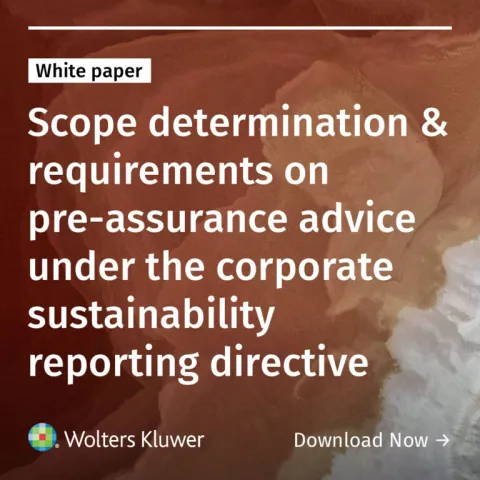Leading German patent law firms criticize European Patent Office
June 14, 2018
Four leading patent law firms in Germany – Grünecker, Hoffmann Eitle, Maiwald and Vossius & Partner – have published an open letter expressing ‘great concern’ about the developments at the European Patent Office, particularly ‘the modifications to the incentive systems for the examination of patent applications’.
The ‘overreaching desire for high productivity’ has led to a series of problems, according to the letter, which is directed to outgoing EPO president Benoit Battistelli, the chairman of the Administrative Council Christoph Ernst, principal director user support & quality management Niclas Morey and future EPO president Antonio Campinos (who will start in office on 1 July 2018).
Among others, the firms write that when ‘the aim is to terminate proceedings as quickly as possible (…), the quality of the search and examination of applications must suffer’. The rather high fees, moreover, ‘can only be justified by giving the examiners sufficient time for an indepth assessment of each single application’. Patents with an erroneous scope of protection distort and hinder economic competition and might unhinge the patent system, they write.
More broadly, the law firms question the enormous financial reserves of the European Patent Office, amounting to 2.300.000.000 euros, 650 million euros to fund the pension scheme not included: ‘in contrast to an industrial company, we cannot see why the profit of the EPO needs to be increased beyond the level of self-funding. From our perspective, the high surplus is rather an indication that the fees are too high and that a further, problematic increase of productivity is not appropriate.’
The full text of the letter is published below.
Open Letter: Quality of Examination Proceedings at the EPO
Dear President Battistelli, Dear Dr. Ernst, Dear Mr. Morey, Dear Mr. Campinos,
Each year our law firms file more than 9500 patent applications with the EPO.
For several years now we have followed with great concern the developments at the European Patent Office, in particular the modifications to the incentive systems for the examination of patent applications. The incentive systems and internal directives appear to be increasingly directed towards rewarding or even requesting rapid “termination” of proceedings and a correspondingly higher productivity. This has resulted in penalization of detailed and thorough assessment of cases.
While we do appreciate the increased average speed of the proceedings, such an overreaching desire for high productivity has led to the following, specific problems regarding the examination of patents:
a) When the aim is to terminate proceedings as quickly as possible within specific allowed times, the quality of the search and examination of applications must suffer.
b) The fees for search and examination, which are rather high when compared internationally, can only be justified by giving the examiners sufficient time for an indepth assessment of each single application.
c) Patents that have been examined less thoroughly tend to have an erroneous scope of protection. This distorts and hinders economic competition within the EPC Member States.
d) Proprietors of inadequately examined patents are exposed to an increased risk of their patents not being able to be successfully asserted against competitors in their full scope.
e) If the users of the European system gain the impression that granted EP patents cannot be relied upon anymore due to insufficient search and examination, the users may increasingly be discouraged from filing European patents. This might unhinge the entire patent system.
f) The core task of the EPO is the examination and grant of European patents. This is an important public task, where the EPO needs to balance the interests of the public against the interests of patent applicants. The official fees are supposed to self-fund the EPO. However, in contrast to an industrial company, we cannot see why the profit of the EPO needs to be increased beyond the level of self-funding. From our perspective, the high surplus is rather an indication that the fees are too high and that a further, problematic increase of productivity is not appropriate.
We have observed that our perception of endangered quality of the examination of European patent applications is shared by a large number of patent examiners. As you know, a petition was recently published in which more than 900 examiners at the European Patent Office revealed that they are prevented by the internal directives from a thorough, complete search and examination.
In view of this background, we urgently suggest setting up new incentive systems for examining European patents so that the high-quality of searches and examinations for which the European Patent Office used to be known will be guaranteed again.
For regular updates, subscribe to this blog and the free Kluwer IP Law Newsletter.
You may also like














Concerned observer
I can only applaud the companies involved in writing this letter. I could not agree more with the concerns that it expresses. I can only hope that the incoming president realises that the concerns expressed cannot be easily dismissed... not least because the unprecedented nature of the letter indicates that the authors must be very concerned indeed.
Save the EPO from destruction
MANY THANKS for this brilliant initiative. By the way the content of the letter could be taken up by SUEPO as-is! Indeed SUEPO (which represents half of EPO staff) denounced since years (so far to no avail) the dangers of Battistelli's policies (for both the quality of the patents delivered as well as on health of staff)... and the Administrative Council remain passive. It is 5 to 12. In a few weeks, Mr Campinos will arrive in an exhausted office which cannot continue on this path much longer before collapsing. Let's hope that Mr Campinos will understand the poisonous legacy he inherits from his predecessor and in particular, that he has to be very cautious with the teams in place who are directly responsible for this debacle (in particular in HR, and DG1) since something must be done asap to restore both the social atmosphere, the reputation of the EPO AND the quality of the work performed.
Two weeks and he’ll be gone!
Printed, framed and hung in my office. THANK YOU SO MUCH!
Better late than never
Had they sent around this letter before, maybe le monsieur would have not dared publishing this last Monday: “Delivering High Quality Services - [...] User feedback has been gathered through a multitude of channels and has confirmed increasing levels of satisfaction with the EPO's products and services, year after year”. http://m.epo.org/news-issues/news/2018/20180611.html
MaxDrei
My comments on the perceived "problems" a) to f): a) why "must" quality suffer, merely because of a "aim" (which President Brimelow also had) to get to a grant or refuse decision "as quickly as possible"? And as for "within specific allowed times" I never heard it argued that the UK 1949 Patents Act's hard limit on time to grant has an adverse effect on "quality" in the UK. That said, quality "must" inevitably suffer, if you impose unreasonable productivity targets on hard-working and conscientious Examiners. Worse, the imposition of such targets will generate a shoulder-shrugging "so what" mentality which is the enemy of "quality". b) the EPO is not the only Patent Office where its shareholders milk the Applicant community. That Patent Office fees are used a covert tax revenue operation is a different problem from giving Examiners enough time and resources to do a "quality" job of search and examination. c) What, for goodness's sake, is an "erroneous" scope of protection? Again, consider the UK Patents Act 1949. It required rigorous examination of clarity and novelty but no examination of obviousness. Everybody knew the Rules of the Game. Nobody complained, that the Office was issuing over-wide claims. My problem at the moment is that Examining Divisions of the EPO are setting too high a standard of clarity under Art 84 EPC. To much "quality" here, rather than not enough. Why that? Because the zealous in-house EPO Quality Police have to be seen (by Chairs of Exam Divisions) to be ferocious, and that is easier accomplished under Art 84 than under Art 54 or 56. d) What? Patent owners at risk of not succeeding with claim 1 in an infringement action? When in the history of patents was this ever not the case? Upon issue, there is a Presumption of Validity, regardless of whatever level of "quality" the EPO runs at. What more do you want, for goodness' sake? Spare a thought for the accused infringer, usually smaller than the Big Corp patent owner. Is his protestation, that the asserted claim is invalid, to be greeted with a shoulder shrug and a retort that if the EPO issued it, well then it must be valid? Of course when the Applicant is David and the accused infringer is Goliath, we need a system that delivers "Equality of Arms" to save Little David from obliteration. But merely giving an EPO Examiner unlimited time to examine David's patent application is nowhere near enough to deliver that necessary objective. e) See d) above. To nurture the patent system what is needed is a high level of confidence that, if you have an issued claim that is not invalid, you can enforce it speedily and economically, regardless how Big and Ugly the accused infringer is. Complain somewhere else if, in your country, that is not the case. It isn't the EPO's fault. f) I agree. This grotesque surplus suggests opacity and corruption on an industrial scale. But hey, with supra-national organisations that's the rule, not the exception. Nobody knows yet, how to stop it. Overall, this Open Letter strikes me as a manifestation of I) German craving for certainty ii) German deference to "authority" and iii) a yearning for the Good Old Days, when if the DPMA granted your patent you were then the proud possessor of an "examined right" which, by definition was valid. Those days are gone. Life today is too complex. There is too much prior art these days, for the Office to know it all. A public prior use somewhere in the middle of Asia is just as novelty-destroying as a patent specification of a German competitor. One last comment. I'm puzzled by the reference to "incentive systems". Is this alluding to the idea of "One point for an allowance but two for a refusal"? Is this what troubles you so much? Or is it the never ending "bar raising" of the output productivity targets being imposed on Examiners? If the latter, I agree with you: it's counter-productive, Mr Campinos. It has got to stop. Thorsten Bausch I admire your work on this blog. My remarks above are deliberately provocative, to try to whip up a vigorous discussion here. I hope you don't see my remarks as so offensive that they must be suppressed and denied publication here.